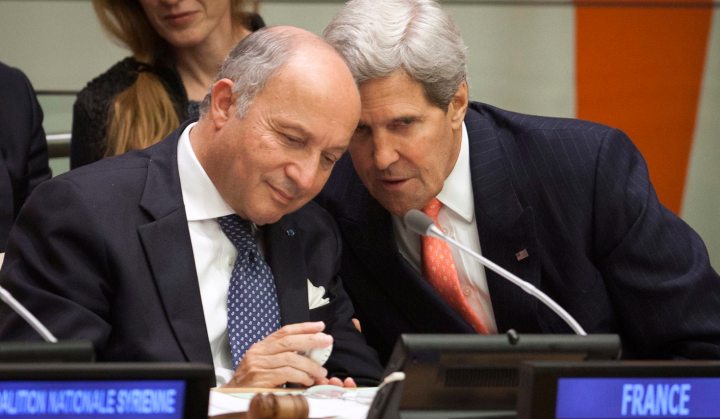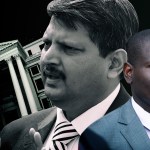Newsdeck
France outraged over US spying report

France summoned the U.S. ambassador on Monday after Le Monde newspaper reported the huge scale of alleged American spying on French citizens, with Foreign Minister Laurent Fabius calling the revelations unacceptable. By Adrian Croft and Arshad Mohammed.
Le Monde said the U.S. National Security Agency (NSA) recorded 70.3 million items of French telephone data between Dec. 10, 2012 and Jan. 8, 2013 and had collected tens of thousands of French phone records.
Its targets appeared to be individuals suspected of links to terrorism, but also people tied to French business or politics, the paper said.
The issue triggered a phone call between U.S. President Barack Obama and French President Francois Hollande. The two men “discussed recent disclosures in the press – some of which have distorted our activities and some of which raise legitimate questions for our friends and allies about how these capabilities are employed,” the White House said in a statement.
Obama noted that the United States was reviewing how it gathers intelligence to balance security and privacy concerns, the White House said.
The allegations tested France’s relations with Washington just as U.S. Secretary of State John Kerry arrived in Paris for the start of a European tour over Syria.
French Foreign Minister Laurent Fabius said the Le Monde report on Monday had revealed “unacceptable practices”.
“We have extremely useful cooperation with the United States in the struggle against terrorism, but this cooperation does not justify everything,” Fabius told reporters on the sidelines of a meeting with EU counterparts in Luxembourg.
“So we’ve asked the United States to provide clarifications, explanations and justifications extremely quickly,” he added.
Speaking to reporters in Paris, Kerry declined to comment on Washington’s intelligence-gathering as a matter of policy, but said that the United States would hold talks with France and other allies on the issue.
“Our goal is always to try to find the right balance between protecting the security and the privacy of our citizens and this work is going to continue as well as our very close consultations with our friends here in France,” Kerry said.
The U.S. embassy in Paris said Ambassador Charles Rivkin had promised Fabius’s chief of staff that he would convey France’s concerns to Washington.
CLOSE TIES ENDANGERED?
Rivkin declined immediate comment but stressed that U.S.-French ties were close. “This relationship on a military, intelligence, special forces … level is the best it’s been in a generation,” Rivkin told Reuters as Kerry arrived in Paris.
The scope of the NSA’s alleged surveillance programme may overshadow a relationship that has appeared strong in recent years as Paris and Washington cooperated closely on national security and united to bring pressure on Syrian President Bashar al-Assad to quit.
In July, Paris prosecutors opened a preliminary inquiry into the NSA’s programme, known as Prism, after Britain’s Guardian newspaper and German magazine Der Spiegel revealed wide-scale spying by the agency leaked by former NSA contractor Edward Snowden.
Despite initial criticism that overshadowed the start of U.S.-EU free-trade talks that month, France’s politicians have until now remained relatively subdued as the scale of the NSA’s alleged spying efforts became apparent.
But Fabius said two meetings earlier this year between U.S. and EU officials on data protection had not dispelled his government’s concerns and had not gone far enough.
Hollande is to ask other EU leaders at a summit this week to find ways to protect citizens’ data, Fabius said.
European allies of the United States, including France and regional power Germany, have mixed feelings about the revelations from the Snowden documents that allegedly show how the NSA collects data on foreign targets around the world.
In Germany, where many are particularly sensitive about surveillance given the state’s history of spying on its own people during the Cold War, there were protests about the NSA affair over the summer.
Chancellor Angela Merkel has not been particularly outspoken in her criticism of the programmes, although she did ask U.S. President Barack Obama for explanations during his July visit to Germany. DM
Photo: U.S. Secretary of State John Kerry (R) speaks to France’s Foreign Minister Laurent Fabius during an administrial meeting of the Group of Friends of the Syrian People during 68th United Nations General Assembly at U.N. headquarters in New York, September 26, 2013. REUTERS/Carlo Allegri




















 Become an Insider
Become an Insider